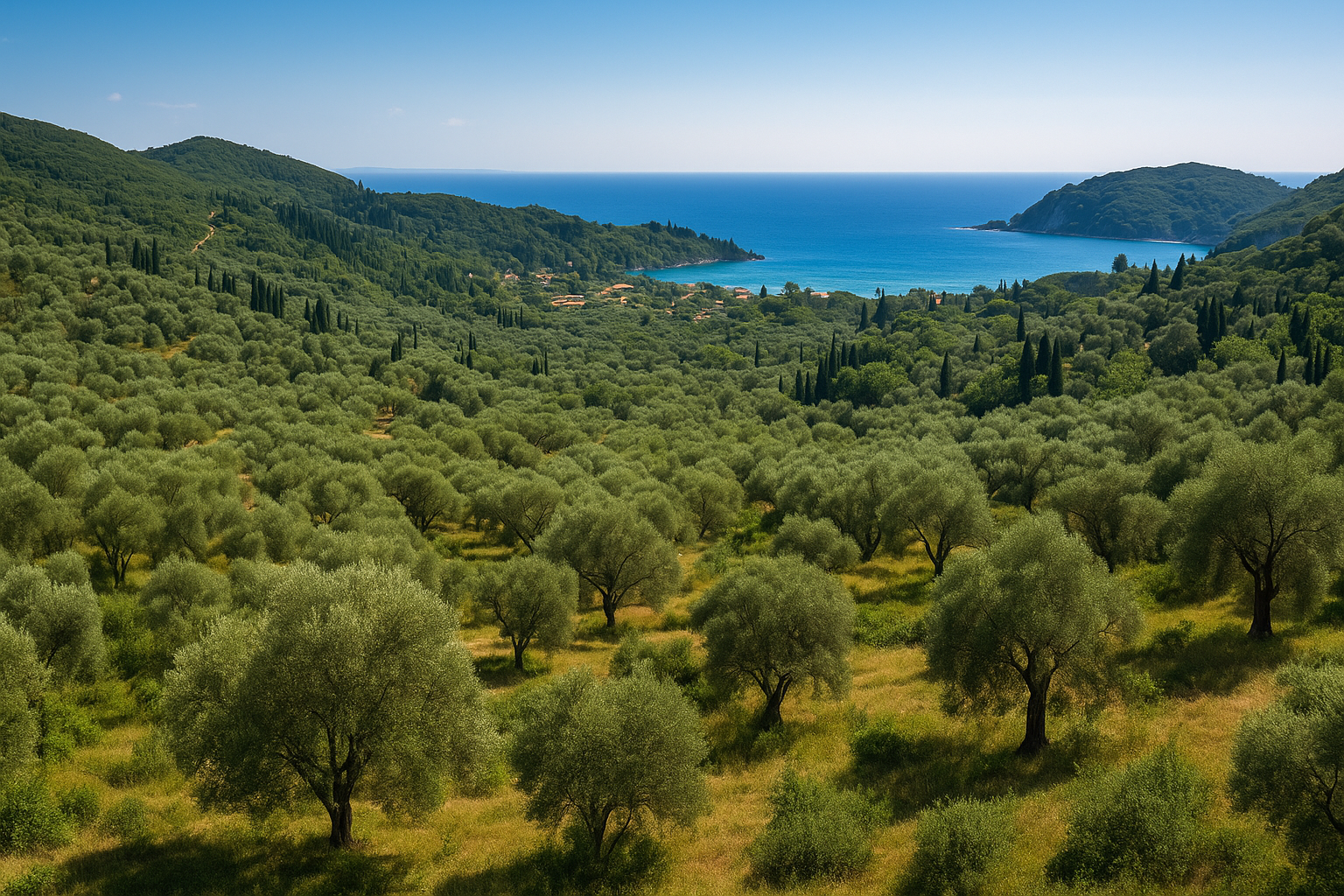A Treasure for Health, Skin, and Hair
I grew up in a culture where olive oil wasn’t just an ingredient—it was the oil. On the Greek island where I was raised, nearly every household had olive trees. The island’s green hills were dotted with ancient trunks and silvery leaves, and fresh, golden-green oil flowed after the press. We used it for everything: in our meals and even as a home remedy for beauty. My mother often warmed a little oil in her hands to smooth my hair and calm the flyaways. Back then, I didn’t fully appreciate this gift of abundance.
Now living in the U.S., I don’t have the same direct access to freshly pressed olive oil. But I’ve held tightly to the tradition. I cook primarily with extra virgin olive oil, and I always keep an eye out for natural cosmetics made with it. Today, I want to share why olive oil is truly nature’s gold—backed by both tradition and science.
Olive Oil in Our Diet: A Pillar of the Mediterranean Lifestyle
Olive oil, especially extra virgin olive oil (EVOO), is a core component of the Mediterranean diet, which is consistently ranked as one of the healthiest in the world.
🌿 Scientifically Supported Benefits:
- Heart Health: EVOO may help support cardiovascular health by improving cholesterol levels and reducing the risk of heart disease.
- Anti-inflammatory Effects: Natural compounds in olive oil are believed to help reduce inflammation.
- Brain Protection: Diets rich in olive oil have been associated with improved cognitive health.
- Cancer-Fighting Properties: Antioxidants in olive oil may help protect cells from oxidative stress.
- Diabetes Management: Olive oil could improve insulin sensitivity and metabolic function.
💡 Tip: Use EVOO cold in salads or drizzle on cooked dishes to preserve its antioxidants. For high-heat cooking, choose high-quality olive oil with low acidity.
Olive Oil for the Skin: Gentle, Healing Hydration
Mediterranean women have used olive oil on their skin for centuries. Cleopatra herself was rumored to bathe in it. Olive oil is known for its moisturizing properties and richness in antioxidants like vitamin E and polyphenols.
It’s been used to:
- Hydrate dry skin
- Help with minor wounds and skin regeneration
- Act as a gentle antibacterial aid
- Calm irritated or inflamed areas
💡 Tip: Apply a small amount of cold-pressed olive oil to damp skin after a shower, or blend a few drops into your body lotion for added nourishment.
⚠️ A Word of Caution
Not all research supports the topical use of olive oil—especially for those with sensitive skin. A study published in the Journal of Allergy and Clinical Immunology suggests that olive oil may impair the skin barrier function, particularly in infants. It recommends olive oil for internal consumption rather than regular use as a skin moisturizer.
If you have eczema, allergies, or very sensitive skin, it may be best to consult a dermatologist before applying olive oil directly to your skin.
Olive Oil for Hair: Shine, Strength, and Scalp Health
My mother always said that olive oil “feeds your hair.” Olive oil contains omega-3 fatty acids, vitamins A and E, and other nutrients that are thought to:
- Strengthen damaged or brittle hair
- Reduce scalp inflammation or dryness
- Smooth and tame frizz
💡 Tip: Warm a few tablespoons of EVOO, massage into your scalp and ends, wrap with a towel, and leave it on for 30 minutes before washing it out.
Sustainability and Olive Oil
Olive trees are drought-tolerant, live for hundreds of years, and can be grown without chemical inputs. When sourced from organic, small-scale producers, olive oil is one of the most sustainable oils available.
Choose:
- Cold-pressed, organic extra virgin olive oil
- Glass bottles or refillable containers
- Brands from local farms or sustainable cooperatives
Final Thoughts
Olive oil is more than a health food or beauty hack—it’s part of a heritage of wellness, deeply rooted in the land and passed down through generations. Whether you’re drizzling it over fresh greens or massaging it into your hair, you’re honoring a legacy of simplicity, nourishment, and respect for nature.
📚 Sources
- Estruch, R., et al. (2013). Primary Prevention of Cardiovascular Disease with a Mediterranean Diet. New England Journal of Medicine, 368(14), 1279–1290.
https://doi.org/10.1056/NEJMoa1200303 - Guasch-Ferré, M., et al. (2022). Consumption of Olive Oil and Risk of Total and Cause-Specific Mortality Among U.S. Adults. Journal of the American College of Cardiology, 79(2), 101–112.
https://doi.org/10.1016/j.jacc.2021.10.041 - Beauchamp, G.K., et al. (2005). Phytochemistry: Ibuprofen-like activity in extra-virgin olive oil. Nature, 437(7055), 45–46.
https://doi.org/10.1038/437045a - Zribi, A., et al. (2021). Protective Effects of Virgin Olive Oil and Its Components against Oxidative Stress and Inflammation: A Review of the Evidence. Evidence-Based Complementary and Alternative Medicine, vol. 2021, Article ID 9927976.
https://onlinelibrary.wiley.com/doi/full/10.1155/2021/9927976 - Leung, D.Y.M., et al. (2021). Olive oil is for eating and not skin moisturization. Journal of Allergy and Clinical Immunology.
https://doi.org/10.1016/j.jaci.2021.03.030
